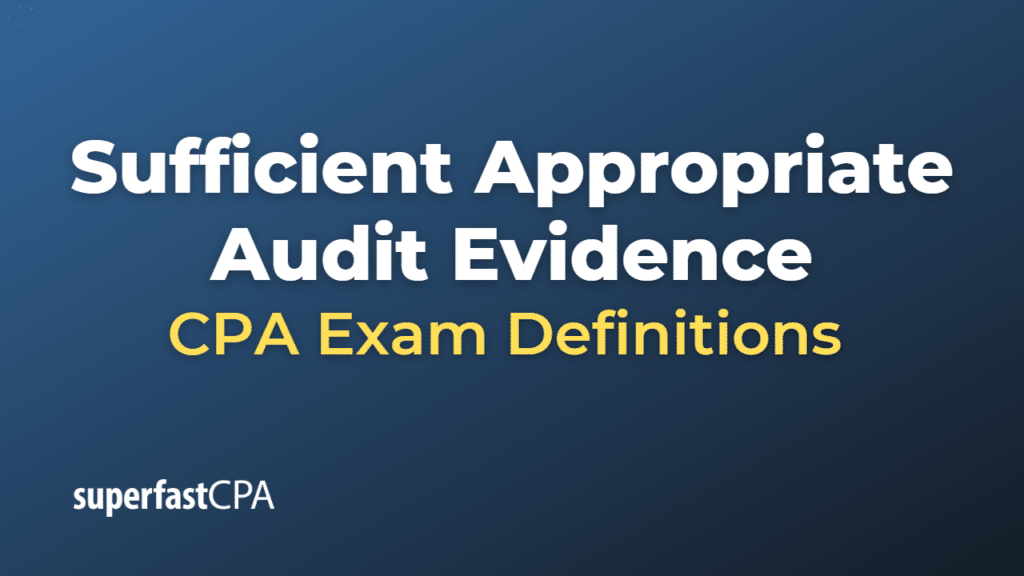Sufficient Appropriate Audit Evidence
In an audit, “sufficient appropriate audit evidence” refers to the quantity and quality of information that auditors obtain during the course of the audit to support their conclusions and form an opinion on the financial statements. It’s a crucial aspect of the audit process, as the auditor’s opinion is based on the evidence gathered during the engagement. The concept of sufficiency and appropriateness of audit evidence is guided by the following principles:
- Sufficiency: Sufficiency refers to the quantity or amount of audit evidence obtained. Generally, the higher the level of risk associated with a particular assertion or account balance, the more audit evidence will be required. Auditors must exercise professional judgment to determine the appropriate level of sufficiency for each audit area, considering factors such as the nature of the account, the assessed risks of material misstatement, and the effectiveness of the client’s internal controls.
- Appropriateness: Appropriateness refers to the quality or relevance of the audit evidence. Audit evidence should be relevant to the specific assertions being tested and should provide persuasive support for the auditor’s conclusions. Appropriateness is influenced by factors such as the source of the evidence, its reliability, and its consistency with other audit evidence obtained.
To obtain sufficient appropriate audit evidence, auditors perform various audit procedures, such as:
- Inspection of documents and records
- Observation of processes and activities
- Inquiry of client personnel
- Confirmation with third parties
- Recalculation of calculations and amounts
- Analytical procedures
- Testing the operating effectiveness of internal controls
The nature, timing, and extent of these procedures will vary depending on the audit’s scope, the assessed risks, and the auditor’s professional judgment. The ultimate goal is to gather enough high-quality evidence to support a reasonable assurance that the financial statements are free from material misstatement and presented fairly in accordance with the applicable financial reporting framework.













